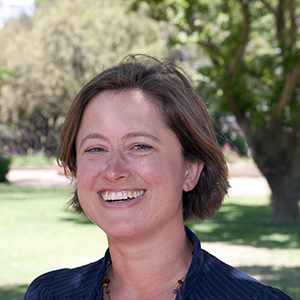Latest News Archive
Please select Category, Year, and then Month to display items
12 October 2020
|
Story Arina Engelbrecht
|
Photo Supplied
 Arina Engelbrecht from Organisational Development and Employee Well-being believes physical activity has a number of benefits for one’s health, including stress relief.
Arina Engelbrecht from Organisational Development and Employee Well-being believes physical activity has a number of benefits for one’s health, including stress relief.
Being physically active plays a big role in preventing the development of mental-health problems and in improving the quality of life of people experiencing mental-health problems.
Treatment for depression
Physical activity can be an alternative treatment for depression. It can be used as a stand-alone treatment or in combination with medication and/or psychological therapy. It promotes all kinds of changes in the brain, including neural growth, reduced inflammation, and new activity patterns are formed that promote feelings of calm and well-being. It releases endorphins – powerful chemicals in the brain that energise your spirit and make you feel good.
Physical activity can be very effective in relieving stress. Research in adults has found that physically active individuals tend to have lower stress levels compared to individuals who are less active. It also leads to improved sleep. When a person sleeps better and feels more rested, overall quality of life improves. They cope better with daily life stressors.
Reduce Alzheimer's risk
Regular physical activity can reduce your risk of developing Alzheimer's disease by up to 50%. It can also slow down further deterioration in those who have already started to develop cognitive problems. It stimulates the brain’s ability to maintain old connections as well as to make new ones.
A study asked people to rate their mood immediately after periods of physical activity (e.g. going for a walk/run, cycling, doing housework) and periods of inactivity (e.g. reading a book or watching television). Researchers found that participants felt more content, more awake, and calmer after being physically active compared to after periods of inactivity.
In conclusion, people who are physically active feel a sense of well-being, feel more energetic throughout the day, sleep better at night, have sharper memories, and feel more relaxed and positive about themselves and their lives.
“Being physically active not only changes your body, it changes your mind,
attitude, and your mood.” – Arina Engelbrecht
Dr Le Roux a fellow of Africa Science Leadership Programme
2016-02-23

Dr Aliza le Roux
Photo: Hannes Pieterse
|
National Research Foundation-rated Y2 scientist, Dr Aliza le Roux, has recently been added to the Africa Science Leadership Programme, an initiative that seeks to create an African network of scientific leaders across disciplinary borders. Her selection to this programme is a reflection of her powerful vision for the continent’s scientific future and sustained scientific excellence.
“It is an honour and an opportunity for me to grow as an academic. This opportunity will also help me build my leadership skills as well as my networks on the continent. It will create a culture of leadership and research that is led by African researchers,’’ Dr Le Roux said.
She added that African researchers have a great potential to solve global problems, yet many of them leave their countries to seek academic success elsewhere. “I hope that the lessons we learn in this programme will pave the way for academia and science to be taken more seriously and practiced more effectively on the continent.”
Together with 21 other fellows from across the continent, Dr Le Roux will be taking part in a week-long workshop in April this year. She is a Senior Lecturer and Subject Head in the Department of Zoology and Entomology on the Qwaqwa Campus of the University of the Free State.